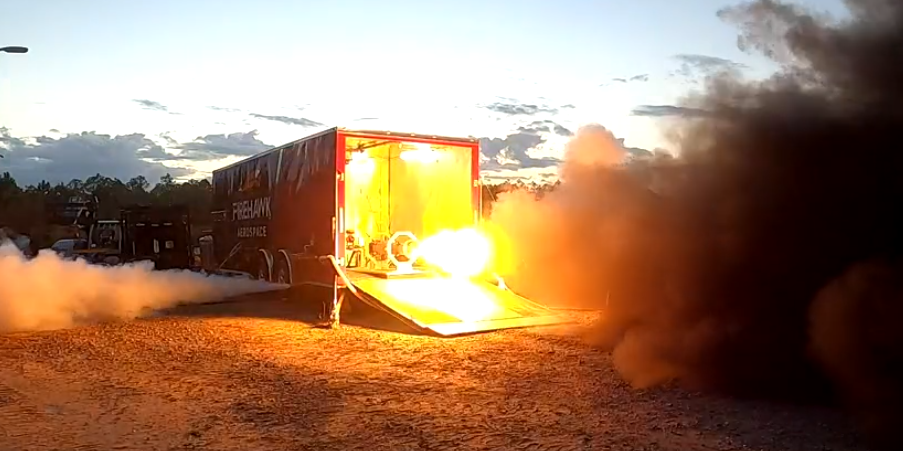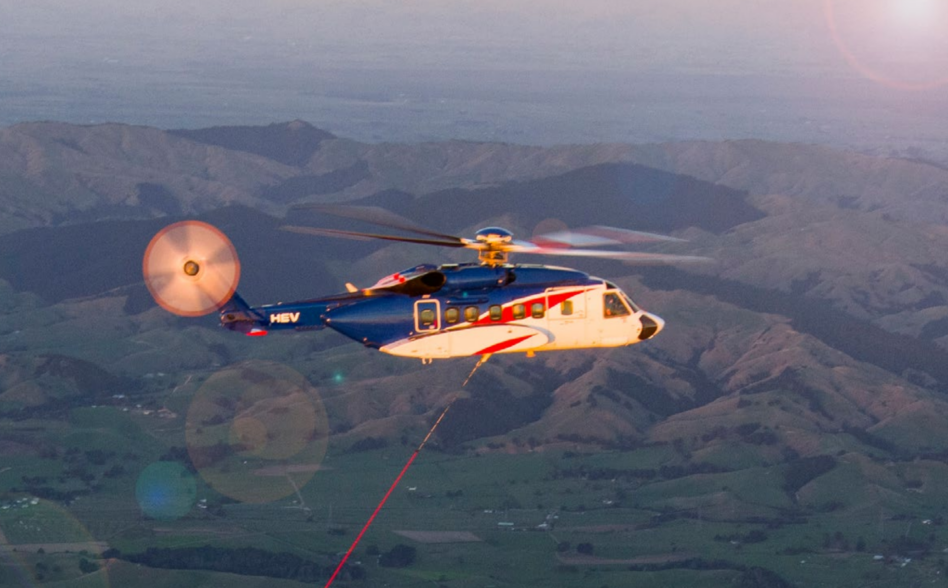A sudden rush of capital is flowing into a sector that, until recently, seemed stagnant: independent propulsion providers. Last week, Firehawk Aerospace, Adranos, and X-Bow Systems, each horizontally integrated propulsion systems developers, announced Series A rounds totaling at least $47M.
Firehawk Aerospace
Last week, Firehawk announced that it had received a Series A investment from Raytheon. The two companies are partnering on R&D for a hybrid engine for missile propulsion.
- The company is building custom rocket engines that are ready to ship within 4-6 months. Engines are made using only 20 components, and Firehawk claims its product costs only a fifth of comparable engines. The startup lowers fuel production costs by 3D-printing its solid fuel.
“There needs to be more competition” in propulsion, Firehawk CEO Will Edwards told Payload. “The propulsion industry has seen rapid consolidation over the past few decades, resulting in a lack of innovation. There is plenty of room for competition. In fact, it is necessary.”
Horizontal integration has allowed Firehawk to focus purely on how to build the best engines and allow its customers to innovate on the rest. “Let us do what we do best, you do what you do best, and we can create a much more efficient industry,” Edwards said.
Adranos
The solid rocket engine manufacturer closed a $20M Series A last week from investors including Impala Asset Management LLC, Explorer1 Fund, Elevate Ventures, and Specific Impulse Capital. Adranos’s differentiator is a high-performance proprietary aluminum-lithium alloy fuel called ALITEC.
“The U.S. government views the limited number of firms in the energetics space as a weakness, and our entry will add further resiliency and capability that our nation can rely on,” Adranos VP of space systems Michael Grasso told SpaceNews.
X-Bow Systems
X-Bow Systems, yet another solid rocket engine manufacturer, raised a $27M Series A last week led by Crosslink Capital and Razor’s Edge Ventures. X-Bow offers a solid rocket engine called Ballesta that it says is the “first large-diameter scale motor designed and tested by a non-legacy systems integrator supplier in over 30 years.”
State of the DIB
The defense industrial base (DIB) has drastically consolidated over the last few decades. A February Pentagon report recalled how mergers and roll-ups became commonplace among satellite suppliers and propulsion providers.
- By 2020, the field of solid rocket motor makers had shrunk to just two providers: Aerojet Rocketdyne and Northrop Grumman (which acquired the capability with Orbital ATK).
- Aerojet was nearly acquired by Lockheed Martin before the FTC stepped in to block the deal earlier this year, citing worries that there would not be enough domestic competition if the market lost access to Aerojet engines.
Takeway: As Ursa Major CEO Joe Laurienti told Payload last month, lacking competition has produced a lapse of innovation. But now there are new launch and hypersonic motor kids on the block—and they’re angling to kickstart competition in the independent propulsion sector.





